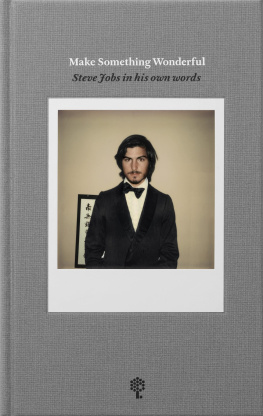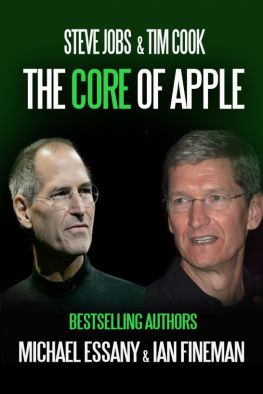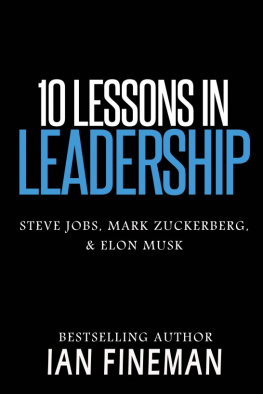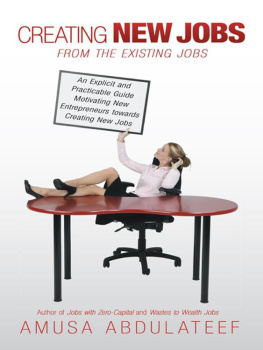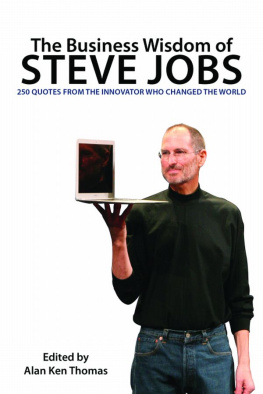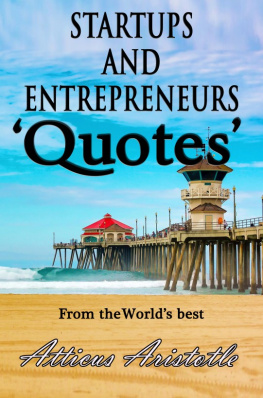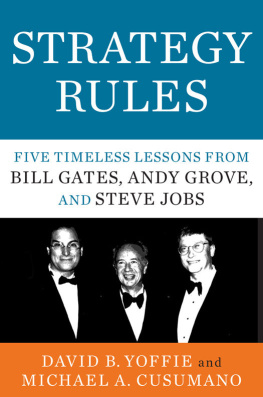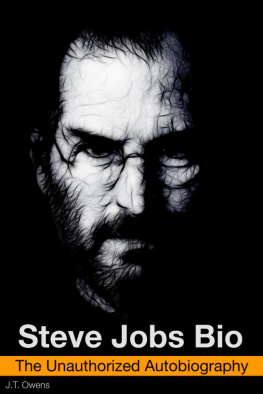Table of Contents
PORTFOLIO / PENGUIN
Published by the Penguin Group
Penguin Group (USA) Inc., 375 Hudson Street, New York, New York 10014, U.S.A. Penguin Group (Canada), 90 Eglinton Avenue East, Suite 700, Toronto, Ontario, Canada M4P 2Y3 (a division of Pearson Penguin Canada Inc.); Penguin Books Ltd, 80 Strand, London WC2R ORL, England; Penguin Ireland, 25 St. Stephens Green, Dublin 2, Ireland (a division of Penguin Books Ltd); Penguin Books Australia Ltd, 250 Camberwell Road, Camberwell, Victoria 3124, Australia (a division of Pearson Australia Group Pty Ltd); Penguin Books India Pvt Ltd, 11 Community Centre, Panchsheel Park, New Delhi 110 017, India; Penguin Group (NZ), 67 Apollo Drive, Rosedale, North Shore 0632, New Zealand (a division of Pearson New Zealand Ltd); Penguin Books (South Africa) (Pty) Ltd, 24 Sturdee Avenue, Rosebank, Johannesburg 2196, South Africa
Penguin Books Ltd, Registered Offices: 80 Strand, London WC2R ORL, England
First published in 2011 by Portfolio / Penguin, a member of Penguin Group (USA) Inc.
Copyright Andy Kessler, 2011
All rights reserved
LIBRARY OF CONGRESS CATALOGING IN PUBLICATION DATA
Kessler, Andy.
Eat people : unapologetic rules for entrepreneurial success / Andy Kessler.
p. cm.
Includes index.
eISBN : 978-1-101-47562-1
1. Entrepreneurship. 2. Technological innovationsEconomic aspects.
3. New products. 4. Value. 5. Economics. I. Title.
HB615.K396 2011
658.409dc22 2010039727
Set in Minion
Without limiting the rights under copyright reserved above, no part of this publication may be reproduced, stored in or introduced into a retrieval system, or transmitted, in any form or by any means (electronic, mechanical, photocopying, recording or otherwise), without the prior written permission of both the copyright owner and the above publisher of this book.
The scanning, uploading, and distribution of this book via the Internet or via any other means without the permission of the publisher is illegal and punishable by law. Please purchase only authorized electronic editions and do not participate in or encourage electronic piracy of copyrightable materials. Your support of the authors rights is appreciated.
http://us.penguingroup.com
To Brett, Ryan, Kurt, and Kyle.
I wrote this for you.
Something from Nothing
I VE SEEN IT HAPPEN SO MANY TIMES.
Someone comes up with a great idea and changes the world.
The next big thing.
I met Michael Dell by phone in his dorm room where he was selling PCs and then met him in person well before Dell Inc. completely changed how personal computers were sold. By getting rid of an entire swath of middlemen, and lowering prices for all of us, he turned himself into a multibillionaire.
I met Steve Jobs as he was getting thrown out of Apple, and once more as he headed back in, when he expanded the companys mission from designing computers to MP3 players and then smart phones and tablets that have made it easier for all of us to get information by voice or by Web wherever we might find ourselves. He got richand you and I got richer lives.
I met Ed Catmull while sitting on the floor at LAX waiting for a delayed flight back to SFO. Pixar was working on its first feature film, Toy Story , which pioneered a whole new way to tell compelling stories. He (and Steve Jobs) got rich, but the rest of us got to see spectacular movies for ten bucks. Quite the bargain.
I met Carl Rosendahl, whose Pacific Data Images was doing similar things for Jeffrey Katzenberg and DreamWorks with a project called Shrek .
I met Larry Ellison as he was selling databases to corporations, when it wasnt so obvious that he was going to completely transform their back offices, squeezing out costs in their finance and supply chains and making them much more productive. Oracle saved businesses a fortune, and they passed the savings along to the rest of us in the form of everything from cheap goods at Walmart to cheap trades at Charles Schwab. Sure, Larry got richafter all, he saved these companies a ton of money. But he made the rest of us rich, too. As costs go down, all of us get wealthier.
Ive met Bill Gates many times, first after Microsoft went public. Gates was pitching Wall Street about upgrading to Windows from DOS (without much luck). Eventually, Wall Street discovered spreadsheets, which lowered their costs and made it vastly easier to do things like take two companies or two financial instruments and merge them into something financeable.
I met Gordon Moore and Andy Grove and Bob Noyce, the founders of Intel, just as they almost lost out to cheap Japanese memory makersbefore turning the massive company on a dime to sell processors (at high margins) to the IBMs and Compaqs and then Dells of the world, driving faster and faster computers so better and better graphics could make computers easier to use for business and making all of us more productivewell, except for those of us who love video games.
I heard Sergey Brin and Larry Page speak to a small group a few years before Google went public. They wanted to know what you were going to search for before you even knew yourself.
I met Rupert Murdoch in the early nineties when he almost lost News Corporation under a siege of debt, and when he began transforming the entire media space, from newspapers to TV to film.
I met Mark Cuban when he and his partner Todd Wagner were peddling AudioNet to anyone in Silicon Valley who would listen, before they sold the audio and video streaming company to Yahoo! for $5.7 billion.
I met Mark Zuckerberg just as Facebook was crossing a few million users; he talked about lowering the cost of communications between groups of people. Today, a good chunk of the planet logs in to the site regularly to keep in touch with friends and family.
I can go on. Meg Whitman when she was at eBay, Jeff Bezos at Amazon, even a few telecom folks who were billionaires for a moment in time.
The cool thing about all these folks is that no one did them any favors. There was no government contract that guaranteed them success. No secret handshakes or sweetheart deals or smoky room concessions.
For the most part, society didnt do them any favorseach of them started small, but saw something big on the horizon and created a process to constantly improve, constantly innovate, and constantly sell exactly what was needed and then identify the next big thing on the new horizon.
Wouldnt you like to have their vision?
How do you find the next big thing?
Yeah, sure, none of them discovered penicillin or cured polio. But these folks increased my standard of living, your standard of living, half the worlds standard of living, on par with any scientist or philanthropist. They created wealth for themselves, yes, but also for society as a whole, by making all of us more productive.
You can too.
S O, HOW WAS I lucky enough to meet all these folks?
Well, it was my job. I worked on Wall Street trying to find the next big things.
I started out as an engineer, designing computer chips and writing software, but I wasnt all that good at it. I spent too much time dreaming about what could be done with all this newfangled technology rather than inventing it.




